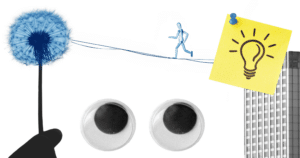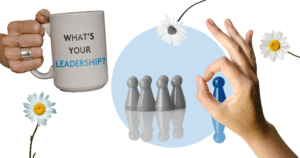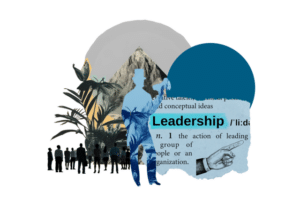Job interviews and assessments are important aspects for managers to consider. They are necessary for moving from one level of the company to another, or from a company to another, but they are also essential in merger and acquisition situations where people are reappointed in their role, repositioned, or directed towards a path that will lead them out of the company. Managing this transition competently and with emotional composure is an important challenge that requires good preparation, in terms of soft skills as well.
During the phases of professional growth within an organization, people are often evaluated using various tools. The aim is to bring out the managerial skills, the behavioral profile, and the development potential of the person. Usually, the way in which the interview will take place or the exercises to perform are unknown, as well as the questions to answer. This is why many people think – erroneously – that it is not possible to train and prepare for these sessions.
In Coaching, often, we talk about gyms, but in this case, we are referring to real competitions that, if played proficiently, lead to success. On the other hand, of course, if mishandled can also lead to losing the job or the desired promotion.
It is necessary to focus one’s professional path
There are many things to consider when facing such a challenge. First, it is necessary to gather all the available information on the assessment method: what are they examining? Which characteristics are regarded positively for the role?
Anja Puntari, Senior Business Coach at Performant by SCOA, tells us: «When I help a manager prepare for an assessment, we always begin with their personal story. Which were the main steps of the Coachee’s professional and managerial growth? What have they learned? What skills did he/she train?».
«We think we know our story, however, we often stop at the surface, without analyzing the meaning each step had for our personal growth. If one does not have a Coach available, I strongly recommend finding a sparring partner with whom to reflect on your journey».
The next step is to reflect on emotions. How did I feel at different moments in my career?
One of the questions which may open an assessment interview, but which may also occur during a normal job interview, is: tell me about yourself. It is a question that leaves room for many interpretations and answers, this is why it is crucial. During this preliminary phase, the aim is to evaluate the interviewee’s reaction when posed a conceptually broad question and to understand whether they have a profile in line with the open position. It is important to highlight why the position for which one is applying matches perfectly with one’s skills and talents acquired in previous experiences. An adequate preparation also allows for good time management and the ability to summarise. Only the necessary details should be shared.
The skills to train before assessment and interview exercises
The assessments and promotion candidacy interviews directed at ‘high’ company profiles are meant to assess the suitability of the candidate to deal with managerial aspects. It is important to be able to drive one’s team in the desired direction and to consider emotions as a source of energy that supports people to fully contribute in their role function. Beyond the individual content, three skills are worth focusing on in such a meeting:
Assertiveness, or the credibility that interlocutors perceive about what we are saying. To be assertive we need to be aware of our body language: do I appear dominant or defensive? What kind of energy is the other person perceiving from me?
Assertive people openly express their points of view, they listen to opposing arguments with serenity, and they remain even-tempered in the face of other people’s attacks, deflections, or aggressions.
«I believe that it is advisable, before important meetings of this kind, to train adequately from an energetic point of view as well. For instance, eating well to avoid low blood sugar during a critical moment, being well-rested and energized for the meeting» Puntari says.
Assertiveness is deeply tied to emotional intelligence. How to remain emotionally stable in such a stressful situation? We can influence our emotional perception both with our thinking and through physical exercises. «I advise my Coachees to do some breathing exercises a couple of minutes before the meeting, perhaps with the help of music that gives them the right energy». I have to learn to listen and ask myself what I need to do right now to be emotionally balanced. It is also necessary to find a dedicated space to calm down and prepare since it is essential to find a secluded place to get motivated before the meeting.
We can also influence ourselves through our posture. Assuming an ‘open’ posture that takes up space, makes us feel more powerful, while huddling up and making ourselves small for instance by hunching our shoulders, makes us defensive and feeds emotions like fear, restlessness, and uncertainty that do not help our performance.
Precisely because we do not know what they will ask us or what they will ask us to do in a test or an assessment, it makes sense to prepare for something unexpected, training flexibility, creativity, and problem-solving. How can I think about this situation, task, or challenge in a different way? How to look at it from another point of view? How to find practical alternatives without being influenced by conventional rules or procedures?
«Let’s remind ourselves that creativity needs a frame within which to be free. In the case of an assessment, it is necessary to prepare for unexpected situations and unconventional proposals. If you enter the room already having a creative mindset, you are at an advantage».
The key to deal with these career changes, often crucial for one’s professional development and growth, is to highlight self-awareness of one’s own actions and practice a learning model.
One could say that this is basically the key to achieve any kind of professional success, and it probably is.






